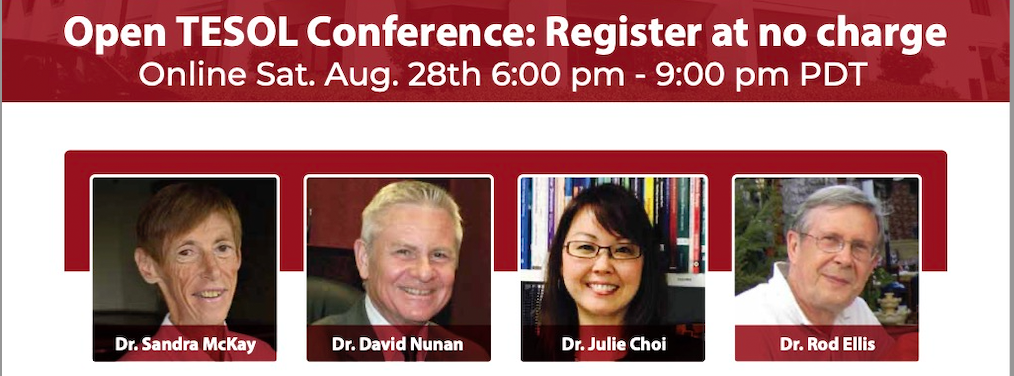
- Anaheim University will hold an online Open TESOL Conference on Sat. Aug. 28th PDT open to the public at no charge.
- The Anaheim University 2021 TESOL Residential Session will be held online from Thursday, August 26th to Saturday, August 28th, 2021 PDT for Anaheim University TESOL students and graduates. AU TESOL graduates may register to attend up to 3 of the non-public sessions at no charge.
To register for the Open TESOL Seminars, click here.
The sessions will be led by Anaheim University's acclaimed TESOL faculty and guest speakers, including:
- Dr. Sandra McKay, Anaheim University TESOL Prof
- Dr. David Nunan, David Nunan TESOL Institute Director, founding Dean of the Anaheim University Graduate School of Education & former President of TESOL International Association
- Dr. Julie Choi, Anaheim University Alumnus & University of Melbourne Senior Lecturer in Education (Additional Languages)
- Dr. Rod Ellis, Anaheim University Senior TESOL Professor & Founding Department Chair
The online residential session is part of Anaheim University's online graduate degree programs in TESOL:
- Online Master of Arts in Teaching English to Speakers of Other Languages (MA in TESOL)
- Online Doctor of Education in Teaching English to Speakers of Other Languages (Ed.D. in TESOL)
Tentative 3-Day Schedule (Subject to change)
All times are Pacific Daylight Time (PDT). Click here for a World Time Converter.
* Session Numbers 11, 12 & 13 in red are open to the public at no charge. Register here.
Thursday, August 26 |
||||
| Session | Time (Pacific Time) | Speaker/Instructor | Topic | Attendees |
| 1 | 2:30 pm - 4:00 pm PDT | Kate Strauss VP, Administrative Affairs |
Student Orientation & Roundtable | Anaheim University MA & Ed.D. Students & Graduates |
| 2 | 4:00 pm - 5:30 pm PDT | Dr. Kathleen Bailey |
Inspiration, Motivation, Humiliation: Outstanding Teachers’ Reflections | Anaheim University MA & Ed.D. Students & Graduates |
| 5:30 pm - 6:00 pm PDT | Break | Break | Break | |
| 3 | 6:00 pm - 7:30 pm PDT | Dr. Hayo Reinders | Value-Driven Research: Tips for Publishing | Anaheim University MA & Ed.D. Students & Graduates |
| 4 | 7:30 pm - 9:00 pm PDT | Dr. Rod Ellis |
Significance of the Implicit vs Explicit Distinction for Language Pedagogy | Anaheim University MA & Ed.D. Students & Graduates |
Friday, August 27 |
||||
| Session | Time (Pacific Time) | Speaker/Instructor | Topic | Attendees |
| 5 | 2:30 pm - 4:00 pm PDT | Andy Curtis |
Being a ‘Good’ Leader (in Language Education): “How Hard Can It Be?" | Anaheim University MA & Ed.D. Students & Graduates |
| 6 | 4:00 pm - 5:30 pm PDT | Dr. John Macalister |
Making connections: Public memory and language teaching | Anaheim University MA & Ed.D. Students & Graduates |
| 5:30 pm - 6:00 pm PDT | Break | Break | Break | |
| 7 | 6:00 pm - 7:30 pm PDT | Dr. Rod Ellis | Options in the Design of a Task-Based Language Teaching Curriculum | Anaheim University MA & Ed.D. Students & Graduates |
| 8 | 7:30 pm - 9:00 pm PDT |
Dr. David Nunan Dr. Julie Choi Fiza Mohd Zali |
Professional development: What's the point? | Anaheim University MA & Ed.D. Students & Graduates |
Saturday, August 28 |
||||
| Session | Time (Pacific Time) | Speaker/Instructor | Topic | Attendees |
| 9 | 2:30 pm - 4:00 pm PDT | Dr. Martha Clark Cummings | Student Roundtable & What is Good Writing | Anaheim University MA & Ed.D. Students & Graduates |
| 10 | 4:00 pm - 5:30 pm PDT | Dr. Ken Beatty |
Online, Local and Personal: The Future of Language Teaching and Learning | Anaheim University MA & Ed.D. Students & Graduates |
| 5:30 pm - 6:00 pm PDT | Break | Break before open sessions | Break | |
|
11 * |
6:00 pm - 7:00 pm PDT | Dr. Sandra McKay |
The need for diversity and inclusion in ELT textbooks | Open to the Public |
|
12 * |
7:00 pm - 8:00 pm PDT |
Dr. David Nunan Dr. Julie Choi |
How do we know what our learners need? (How) Do they know what they need? | Open to the Public |
|
13 * |
8:00 pm - 9:00 pm PDT | Dr. Rod Ellis | Pre-Task Planning for Writing | Open to the Public |
* Session Numbers 11, 12 & 13 in red are open to the public at no charge. Register here.
Abstracts
Inspiration, Motivation, Humiliation: Outstanding Teachers’ Reflections
Kathleen Bailey, Ph.D.
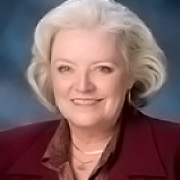
Teachers influence learners in ways beyond promoting the mastery of skills and knowledge. Indeed, attitudes and emotions are also important part of the relationships among teachers and students. In this interactive presentation, we will explore the ways in which several award-winning teachers were inspired and motivated by their own teachers. But looking at the dark side of the past, we will also learn how their teachers humiliated and discouraged them. Participants will reflect on their own experiences and think about how they wish to be remembered by their future students.
Value-Driven Research: Tips for Getting Published
Hayo Reinders, Ph.D.
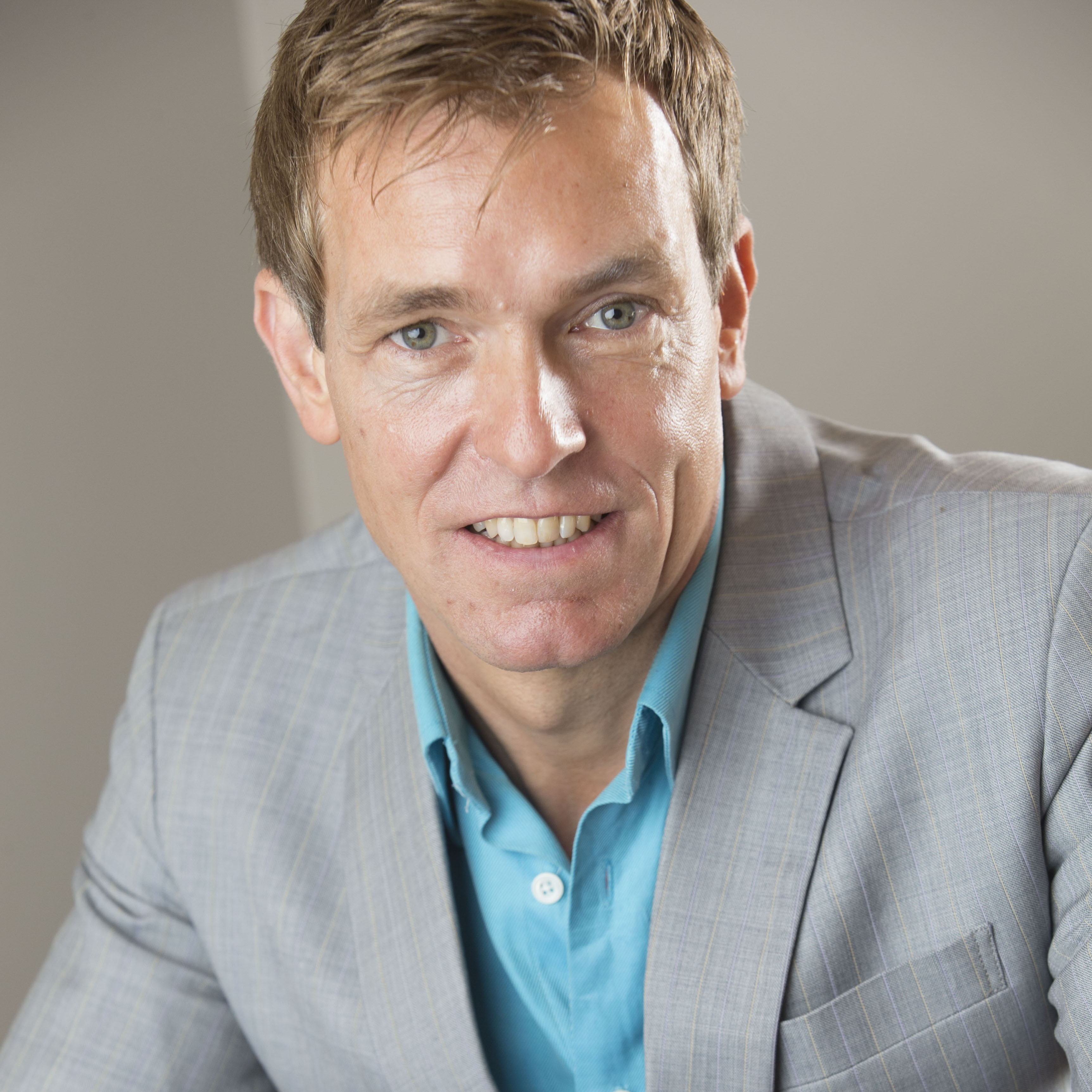
In this informal presentation, I will look at the topic of getting published and – more broadly – at disseminating your work. I will start by looking at the many reasons (personal, professional, and academic) that teachers and academics have for sharing their research, observations, reflections and experiences with the wider community, and the range of possible ‘ outputs ’. I will review the broad range of platforms and channels available nowadays, from traditional anonymous peerreviewed journals, published teaching materials, practitioner-oriented forms of publishing, as well as less formal social networks. I will highlight some of the potential pitfalls and some strategies for choosing the most appropriate avenue for publishing your work. In the later part of the presentation, I will offer some ‘insider tips ’ to increase the chance of getting your work published. There will be plenty of opportunity to ask questions!
The significance of the implicit vs the explicit distinction for language pedagogy
Rod Ellis, Ph.D.
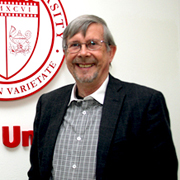
This talk will begin by briefly examining the following distinctions: (1) implicit vs. explicit learning, (2) implicit vs. explicit knowledge and (3) implicit vs. explicit instruction. It will examine the significance of these distinctions for language pedagogy by addressing the following questions:
- How can teachers cater to ‘implicit learning’ in classroom instruction?
- How can teachers cater to ‘explicit learning’ in classroom instruction?
- What role does ‘explicit learning/ knowledge’ play in L2 learning?
- What constitutes an appropriate balance between implicit and explicit language instruction in a language curriculum?
The talk concludes with examples of how ‘tasks’ can be used to construct a curriculum that maximises opportunities for students to develop their implicit and explicit knowledge of a second/foreign language in a classroom context.
Being a ‘Good’ Leader (in Language Education): “How Hard Can It Be?”
Andy Curtis, Ph.D.
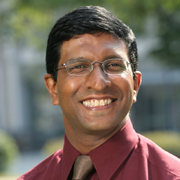
That question became one of the recurring themes during the recent AU Ed.D. EDU 720 course, Leadership and Management in Language Education. And the answer to that particular question turned out to be: It can be extremely hard to be a ‘good’ leader/manager in language education, for a whole host of reasons, some of which are under the individual’s control, but many of which are not. And in terms of language educators being reflective practitioners (as we all are supposed to be these days) due to the highly compacted and intense nature of our Ed.D. courses, the time for in-depth reflection must often wait until the course has ended. In that sense, and perhaps somewhat paradoxically, the deepest levels of long-term learning may begin in earnest when the course ends. Therefore, in this presentation I will review the 100,000-plus words of EDU 720 written discussion, in the 500-plus Discussion Board postings, the 12 hours of live/real-time online classes, the assessments and the assignments, as well as primary questionnaire and interview data from leaders in different countries, to highlight some of the main leadership learning points that we hope will last long after the course itself has become a distant memory. In this talk, we will also be connecting the learning points from our EDU 720 course with a new book, which brings together, for the first time, three centuries of lived language education leadership experience: Reflecting on Leadership in Language Education (Curtis, January 2022, Equinox Publishing: https://www.equinoxpub.com/home/reflecting-leadership)
Making connections: Public memory and language teaching
John Macalister, Ph.D.
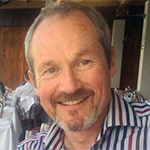
If you travel around New Zealand, my home country, you will find memories of past wars evoked in cities and towns, in rural areas, even in what appears to be the middle of nowhere. These ‘memory places’ are not, of course, unique to New Zealand. They are found throughout the world, and can take many forms, such as museums, monuments, and memorials. Nor are all memory places evoking past conflicts. They are all, however, places that shape public memory. In the shaping of public memory, these memory places draw on different semiotic resources, including language. As a result, they can be approached as linguistic landscapes, and in this talk three different linguistic landscapes/memory places are explored with the following questions in mind: what is remembered? what is forgotten? The exploration draws on both linguistic and non-linguistic shapers of meaning. Two of these memory places are in Wellington, New Zealand, and memorialise the First World War. The other is a series of iron rod sculptures in Penang, Malaysia, and is not a war memorial. I recognise here that in these choices, and in my approach, I am privileging Western forms of memorialisation. This exploration leads to some generalisations about the nature of memory places: for example, that they are deliberate constructions, that they are not immutable, and that their interpretation is personal. More than that, however, the identification of what is remembered, and what (appears to be) forgotten, raises questions about how we learn to read such memory places. As the exploration will demonstrate, the meaning of a memory place is formed through the interaction of top-down and bottom-up reading processes, and recognition of the legitimacy of reader response may well mean that the experienced meaning is not that which was intended. The talk ends with reflections on the extent to which language teachers should prepare learners to be critical readers of the linguistic landscapes they encounter, and ways in which this approach to developing critical thought can be incorporated into the language classroom.
Options in the design of a task-based language teaching curriculum: An educational perspective
Rod Ellis, Ph.D.

I draw on the education literature to describe four educational curriculum models, which serve as a basis for presenting four TBLT curricula based on the proposals of Prabhu (1987), Willis (1996), Long (1985; 2015a; 2015b) and myself (Ellis, 2003 and 2019) – all of which have figured in the development of TBLT. I propose a set of questions that can be used to evaluate these models. I then turn to examine the curriculum design process, identifying options in TBLT curricula that are available at each stage of the process. I point to a tension that exists between what SLA theory indicates is needed and what environmental constraints make feasible and conclude with a plea for flexibility by weighing up which options are appropriate in different teaching situations. I also summarize how I see TBLT benefitting from adopting a broad education perspective that includes critical language pedagogy.
Professional development: What's the point?
David Nunan, Ph.D.
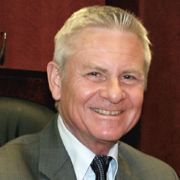
In this presentation, I will argue that if TESOL is to be counted as a profession, it needs to meet certain criteria. One of these is career-long professional development. I will describe four procedures that link professional development directly to one’s day-to-day teaching practice: team teaching, action research, peer observation and mentoring. Julie Choi and Fiza Mohd Zali will then present a case study of their own teaching in which several of these procedures are linked. We will then open the session for questions and discussion.
Julie Choi, Ph.D.
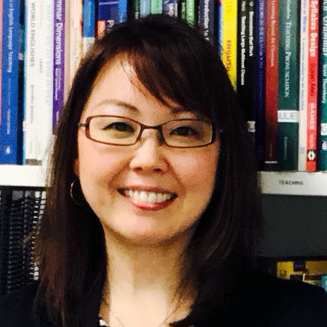
Fiza Mohd Zali
Student Roundtable & What is Good Writing
Martha Clark Cummings, Ph.D.
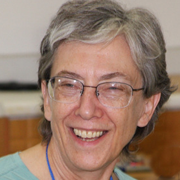
Roundtable
We will give you approximately 30 minutes to briefly reflect on what you have experienced during the first two days of this “Residential.” What are your takeaways? What do you want to learn more about?
Abstract
What is good writing?: The answer is: It depends – on where, when, who, why, what the answer is at the moment. In my 30 years of teaching writing in a variety of settings to very different kinds of students while also trying to figure out how to be a better writer myself, I have passed through multiple theories and practices of teaching ESL writing and had mentors who have changed my life, which I will attempt to describe to you in a very condensed way. In this interactive presentation, we will explore our ideas, values, emotions, theories and practices that lead us toward a better understanding of what good writing is and how we and our students can produce it. Part of our conversation will, of course, be in writing.
Online, Local and Personal: The Future of Language Teaching and Learning
Ken Beatty, Ph.D.
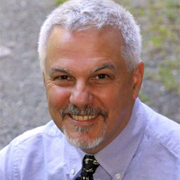
Localizing and personalizing language education are two key ways to engage learners. This builds on efforts to identify and foster students’ intrinsic motivations and other techniques to motivate students extrinsically. But, even for the most motivated students, simply attending English classes is seldom enough to help them achieve fluency. Instead, students need to intensively engage in English outside of class as well as within it. Against the background of the current pandemic-forced move to more online education, in this talk, we explore 25 practical strategies/activities teachers can use online to improve students’ English. Part of this session’s exploration of the future of online language learning is is through a discussion of seven questions:
- How has online learning improved language education?
- What is lost with online education?
- Will we return to the old ways? Why or why not?
- How might roles of teachers and students change?
- What are new online opportunities?
- What technology, materials, and training do we need to succeed?
- How will we prepare for next time?
The need for diversity and inclusion in ELT textbooks
Sandra McKay, Ph.D.

In this talk, the presenter will argue that since English is an international language, it essential for ELT materials to prepare students to use English with individuals from a wide array of cultures. Hence there is a need for ELT texts to address the diversity of English speakers globally but even more importantly locally. The talk will present examples of ELT materials from Japan to illustrate the need to address both diversity and inclusion in ELT materials. In closing the presenter will argue that all teachers, no matter the context, must strive to achieve diversity and inclusion in their materials.
How do we know what our learners need? (How) Do they know what they need?
David Nunan, Ph.D.

The two ideas we want to bring together in this presentation are learner-centered language education and collaborative teaching. We bring these rather lofty concepts down to earth by situating them within a case study of a course taught by Julie and a colleague from the Melbourne Graduate School of Education. While the course was conducted with a group of low-literacy refugee women, it raises issues of relevance to teachers regardless of the contexts in which they teach and the students with whom they are working.
Julie Choi, Ph.D.

Pre-Task Planning for Writing
Rod Ellis, Ph.D.

An important issue in the teaching of writing is whether students should prepare a plan before they start writing. Teacher guides (e.g. Ur, 1996; Hedge, 1990) generally recommend pre-task planning (PTP) but with provisos. Research that has investigated PTP, however, does not lend unconditional support to PTP. This article takes a look the research and draws from it a number of options that teachers of L2 writing can consider when deciding whether and how to undertake pre-task planning in their own teaching context.
To register for the Open TESOL Seminars or if you are an Anaheim University TESOL graduate wishing to register for AU TESOL Residential Session presentations at no charge, click here.
